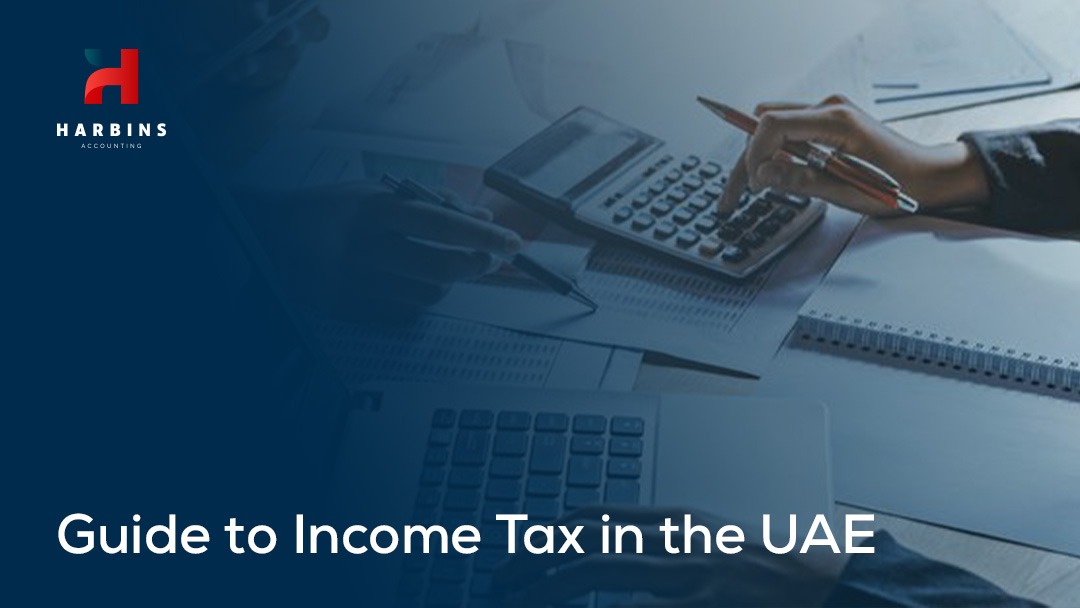Introduction:
Navigating income tax regulations can be complex, particularly in a dynamic business center like the United Arab Emirates (UAE). Whether you’re an expatriate or a business owner, understanding the nuances of income tax laws is crucial for effective financial planning and compliance. In this comprehensive guide, we’ll delve into the intricacies of income tax in the UAE, covering tax rates, deductions, compliance requirements, and the significance of partnering with a reputable accounting firm in Dubai to ensure financial success.
Understanding Income Tax in UAE:
The UAE’s reputation as a tax-friendly jurisdiction stems from its policy of no federal income tax on individuals and corporations. However, it’s essential to note the presence of other taxes such as Value Added Tax (VAT), excise tax, and corporate taxes. Regarding income tax, the UAE operates on a territorial basis, meaning only income generated within its borders is subject to taxation. This unique approach attracts individuals and businesses seeking to maximize their tax efficiency while operating in the region.
Tax Rates and Thresholds:
While personal and corporate income tax are absent, understanding other tax obligations like VAT, currently set at 5%, is imperative for businesses operating in the UAE. Additionally, familiarity with tax rates and thresholds ensures accurate financial planning and compliance with tax laws. It’s worth noting that the absence of income tax does not mean total exemption from all taxation, and businesses must factor in other taxes when strategizing their finances. Being aware of applicable tax rates and thresholds enables businesses to make informed decisions regarding investments, expenses, and overall financial strategies. For example, businesses can plan their pricing structures and budgeting processes effectively by considering the impact of VAT on their operations.
Deductions and Allowances:
Although income tax isn’t levied in the UAE, there are opportunities for individuals and businesses to optimize their tax positions through deductions and allowances. Businesses can claim deductions for legitimate business expenses, while individuals may qualify for exemptions on certain types of income. Expert guidance from an accounting firm in Dubai can help navigate these complexities and maximize tax benefits. Common deductions may include expenses related to business travel, office rent, salaries, and utilities. By leveraging available deductions and allowances, individuals and businesses can minimize their tax liabilities and retain more of their earnings for reinvestment or personal use. Moreover, understanding the eligibility criteria for deductions and allowances ensures that taxpayers are compliant with UAE tax regulations while optimizing their financial positions.
Compliance Requirements
Despite the favorable tax environment, compliance with tax laws remains crucial. Non-compliance can result in penalties and legal ramifications. Fulfilling tax obligations, including timely filing of tax returns and maintaining accurate financial records, is essential for individuals and businesses alike. Partnering with an experienced accounting firm in Dubai ensures adherence to compliance requirements and minimizes the risk of penalties. They can assist with proper documentation, record-keeping, and filing procedures to ensure smooth compliance with UAE tax regulations. Additionally, staying updated on changes to tax laws and regulations is essential to remain compliant and avoid any potential issues with tax authorities. For instance, understanding the implications of new tax regulations or amendments helps businesses adjust their practices accordingly to avoid penalties and maintain their reputations.
The Role of an Accounting Firm in Dubai:
Given the intricacies of income tax regulations, enlisting the services of an accounting firm in Dubai is invaluable. Such firms offer expertise in understanding tax laws, optimizing tax efficiency, and ensuring compliance. From tax planning and preparation to representing clients during audits, accounting firms play a vital role in safeguarding their clients’ financial interests. Additionally, they provide ongoing support and advice to navigate any changes in tax regulations or business circumstances. By entrusting tax-related matters to professionals, individuals and businesses can focus on their core activities while having peace of mind regarding their tax obligations. Moreover, accounting firms in Dubai often offer a range of services beyond tax assistance, including auditing, financial advisory, and business consultancy, providing comprehensive support to clients across various aspects of their operations.
Conclusion:
Income tax regulations in the UAE present a unique landscape marked by favorable tax policies and a lack of personal and corporate income tax. However, navigating these regulations requires a comprehensive understanding of applicable taxes, deductions, and compliance requirements. By partnering with a reputable accounting firm in Dubai, individuals and businesses can maximize tax efficiency while ensuring compliance with UAE tax laws. Stay informed, seek expert advice, and take proactive steps to manage your tax obligations effectively in the UAE. With proper guidance and support, taxpayers can navigate the complexities of the tax system and optimize their financial positions for long-term success.
FAQs
1.Is there income tax in the UAE?
No, the UAE does not impose federal income tax on individuals and corporations. However, other taxes such as Value Added Tax (VAT), excise tax, and corporate taxes may apply.
2.What is the current VAT rate in the UAE?
The Value Added Tax (VAT) rate in the UAE is currently set at 5%.
3.Are there opportunities for tax deductions and allowances in the UAE?
While income tax isn’t levied in the UAE, individuals and businesses may still qualify for deductions and allowances.
 +971 50 846 8427
+971 50 846 8427 info@harbinsme.com
info@harbinsme.com +971 50 846 8437
+971 50 846 8437 info@harbinsme.com
info@harbinsme.com

